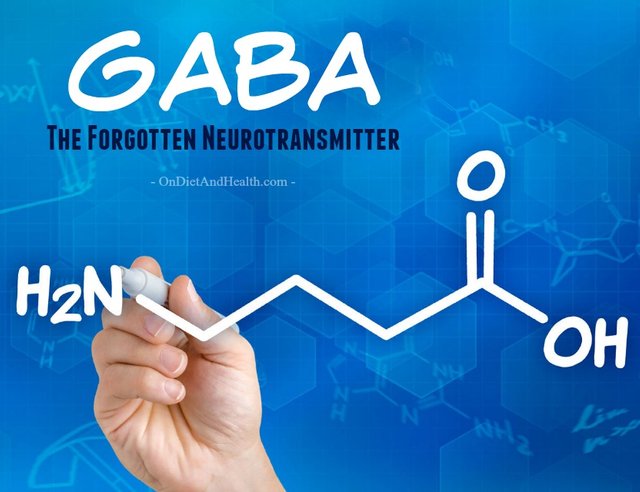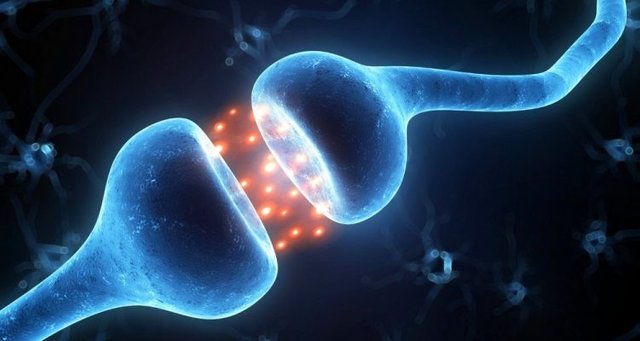Neurotransmitter of calm and Relaxation (GABA)
Do you feel excited, irritable or sad without good reason? Is it a feeling that invades you frequently? Although there may be several explanations for this, one possibility is that there is a low density of certain substances in your brain. Our brain can use up to 100 different neurotransmitters, being GABA one of the most important, known as the neurotransmitter of calm and relaxation.
Gamma-aminobutyric acid (GABA) is an amino acid and a neurotransmitter that regulates brain excitability by inhibiting excessive firing of neurons, which results in a feeling of calm. Properly balancing your GABA level can reduce stress, make you feel less anxious and reduce the likelihood of different health problems.
What is GABA and what does it do?
Gamma-aminobutyric acid is one of the most important neurotransmitters, the chemicals that brain cells use to communicate with each other. In fact, it is the most frequent inhibitory neurotransmitter. Inhibitory neurotransmitters decrease the likelihood that a nerve impulse will trigger.
The main function of GABA as an inhibitory neurotransmitter is to slow down brain activity. He is also involved in vision, sleep, muscle tone and motor control. In addition, it is widely distributed both inside and outside the central nervous system. It is found in the intestines, stomach, bladder, lungs, liver, skin, spleen, muscles, kidneys, pancreas, and reproductive organs.
Diseases and disorders related to GABA dysfunction include autism, bipolar disorder, depression, schizophrenia, epilepsy, fibromyalgia, meningitis, some types of dementia (Alzheimer's disease, Lewy body disease, frontotemporal dementia) and some intestinal disorders (disease of Crohn, colorectal cancer, IBS, ulcerative colitis). In addition, diseases characterized by involuntary movements, such as Parkinson's, tardive dyskinesia and Huntington's chorea are also associated with low levels of this neurotransmitter.
One of the most important functions of GABA is its ability to minimize stress and anxiety. When this is low, the likelihood of feeling anxious, overwhelmed and very sensitive to stimulation increases. In this sense, an article published in the journal Nature states that this neurotransmitter can specifically decrease the unwanted thoughts that feed stress, anxiety, depression and other psychiatric disorders.
Another way in which gamma-aminobutyric acid affects brain activity is by altering brain wave patterns. The presence of GABA increases the brain waves associated with a relaxed state (alpha waves) and decreases those associated with stress and anxiety (beta waves).
The balance of brain activity
To talk about how gamma-aminobutyric acid works, we must take into account another neurotransmitter, L-glutamate. This neurotransmitter is a natural byproduct of the production of energy in the brain. One of the products of the metabolization of glucose in the brain is L-glutamate, a very important neurotransmitter.
These two neurotransmitters are complementary and opposite. L-glutamate, as the main excitatory neurotransmitter, balances the inhibitory effects of GABA. Excitatory neurotransmitters increase the likelihood that a nerve impulse will trigger. Thus, while GABA slows brain activity, L-glutamate accelerates it.
These two neurotransmitters work together to control brain activity. But GABA and L-glutamate not only work together, but they can also convert one into the other. L-glutamate is the precursor of GABA, and this, in turn, can be recycled into L-glutamate, as needed.
Are you under GABA?
In most cases, GABA dysfunction can be directly attributed to lifestyle. In this regard, according to Dr. Datis Kharrazian, a researcher at the Harvard Medical School, too much stress, poor diet, lack of sleep, too much caffeine and intolerance to gluten are causes of the "dysfunction" of GABA.
Also keep in mind that intestinal bacteria produce this neurotransmitter, so that dysbiosis, an imbalance between good and bad intestinal bacteria can cause the production of very little GABA.
In addition, we must know that the excess of L-glutamate is converted into GABA with the help of vitamin B6 and the enzyme glutamic acid decarboxylase (GAD). But a deficiency of vitamin B6 or an autoimmune reaction can interfere with the production of GABA. The causes of this autoimmune reaction include autoimmune disorders, diabetes, gluten intolerance, celiac disease and Hashimoto's disease.
On the other hand, we must bear in mind that there are many internal chemical changes that can influence the glutamate-GABA balance. In addition, as for consumer substances, caffeine inhibits the activity of GABA, while alcohol and tranquilizers increase it.
How to increase GABA levels?
There are GABA supplements that contain a synthetic form of this neurotransmitter. However, there is controversy over whether the supplements of this neurotransmitter really work. It is not known if taken as a supplement reaches the brain in amounts large enough to have an effect. In any case, some people find that these supplements are very useful.
There is also no established dose for GABA supplements at this time nor enough research to discover the side effects of these supplements. Moreover, there is not enough information to guarantee the safety of these supplements.
However, there are many other ways to maintain a healthy level of GABA naturally. One of these forms is through food. Researchers have analyzed the GABA content of a wide variety of foods, such as whole-grain rice germ, brown rice sprouts, barley sprouts, bean sprouts, beans, corn, barley, brown rice, spinach, potatoes, sweet potatoes, kale and chestnuts.
In addition, research carried out by the Institute of Biosciences of the University of Cork in Ireland has revealed that probiotic foods increase gamma-aminobutyric acid. Foods such as yogurt, kefir, kimchi and sauerkraut contain the bacterial strains that produce GABA, Lactobacillus brevis and Bifidobacterium dentium.
On the other hand, if you are concerned about your GABA levels, it is important that you minimize your intake of caffeine, as it inhibits the ability of this neurotransmitter to bind to its receptors. Instead, you can drink tea, which contains less caffeine and contains the amino acid l-theanine that augments this neurotransmitter.
It should be noted that another very effective way to increase GABA levels is to exercise. Any type of physical exercise increases the levels of this neurotransmitter, but yoga is the most prominent. In fact, the levels of this neurotransmitter in the brain can increase by up to 27% after a single yoga session.
Is Your Brain Making Enough GABA?
Source youtube ( Dr David Jockers )
Reference:
https://www.brainmdhealth.com/blog/relax-your-mind-with-gaba/
https://examinedexistence.com/what-does-the-neurotransmitter-gaba-do/



Hi @joelgonz1982! We are @steem-ua, a new Steem dApp, using UserAuthority for algorithmic post curation! In our last Algorithmic Curation Round, consisting of 107 contributions, your post is ranked at #106. You have already convinced some users to vote for your post, keep trying! Feel free to join our Discord server!